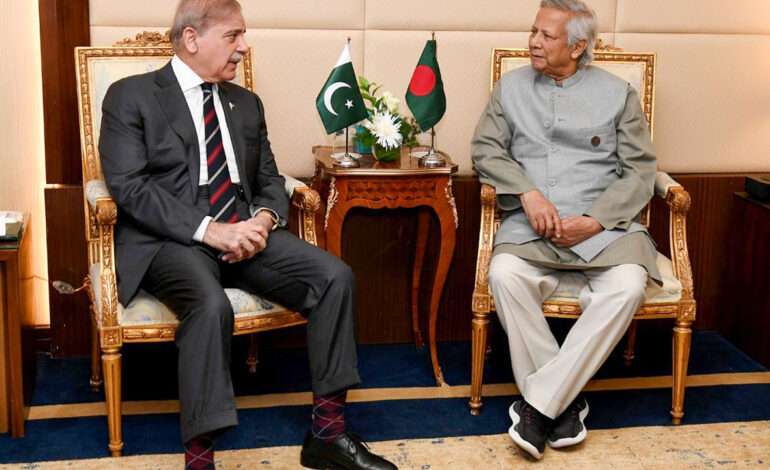
Pakistan’s growing support to Rohingya militants raises security concerns in South Asia
Evidence points to Pakistan’s increasing involvement in supporting Rohingya armed groups in Myanmar’s Rakhine State, fueling concerns of regional instability under Bangladesh’s interim government led by Muhammad Yunus.
The collapse of Myanmar’s central authority, rise of the Arakan Army, and continued displacement of Rohingyas have created conditions exploited by Pakistan’s Inter-Services Intelligence (ISI). Reports suggest that ISI has provided training and radicalisation support to groups like the Arakan Rohingya Salvation Army (ARSA), which is suspected of links with Lashkar-e-Taiba. Pakistani military officers have reportedly visited key Bangladeshi cantonments in Cox’s Bazar and Rangpur.
Under Yunus’ leadership, Bangladesh’s military cooperation with Pakistan is believed to be deepening. Rohingya groups such as ARSA and the Rohingya Solidarity Organisation (RSO) have joined the ‘Four Brothers Alliance’, consolidating their strength within refugee camps. Bangladesh Army is also accused of training Rohingya cadres to fight against the Arakan Army, with bases in Cox’s Bazar, Bagerhat, and Mymensingh.
Meanwhile, the Arakan Army has tightened its grip, claiming control of 14 out of 17 Rakhine townships and conscripting locals. Its offensives against Rohingya Muslims, combined with anti-Rohingya propaganda, have escalated violence and forced new waves of displacement.
The UN-backed plan for a Rakhine Humanitarian Corridor has faced resistance in Dhaka, though the US supports it as a counter to China’s influence. Pro-Pakistan Jamaat-e-Islami Bangladesh has also proposed the creation of an independent Rohingya-majority Arakan State, with tacit Chinese engagement.
As Dhaka pushes for repatriation and aid, Yunus has been lobbying global stakeholders while Bangladesh struggles to manage the refugee burden. Analysts warn that growing Pakistani patronage of Rohingya militants, coupled with Bangladesh’s fragile politics, could pose serious security risks for India and the wider Indo-Pacific region.